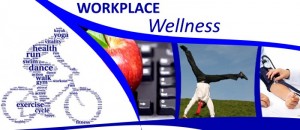Work-Life Balance
 Stress can be positive or negative. When stress sparks personal achievement or life enjoyment and appreciation (positive stress), it can work to your benefit by making you enthusiastic, creative and productive, motivating you. But stress can easily spiral out of control, becoming negative distress, taking its toll on your physical and emotional health and wellbeing if you don’t carefully balance all aspects of your life: work, relationships incl. family and friends, personal growth, playtime and fun.
Stress can be positive or negative. When stress sparks personal achievement or life enjoyment and appreciation (positive stress), it can work to your benefit by making you enthusiastic, creative and productive, motivating you. But stress can easily spiral out of control, becoming negative distress, taking its toll on your physical and emotional health and wellbeing if you don’t carefully balance all aspects of your life: work, relationships incl. family and friends, personal growth, playtime and fun.
Stress is not an illness, but it can lead to specific physical and emotional symptoms, often serious enough to send people to the emergency room or their health care practitioner’s office. According to the American Psychological Association, 43% of adults suffer adverse health effects from stress, and 75 – 90 % of all visits to a doctor are stress related. Women are experiencing more stress at every stage of their lives than ever before. Juggling professional life, education needs, family schedules, money issues, career advancement, child- and elder-care concerns are only a few of the common stress triggers confronting women.
What is work-life balance?
It’s the eternal striving for balance between work and the rest of your life. Is 100% balance possible? No! But you can try to the best of your ability to get as close to a practical balance as possible. The top stress complaints I see regularly both in the workplace and at my Centres, are family or marital problems, deadlines, work related stress, fatigue and a sense that life seems unsatisfactory and unbalanced, sort of ‘is this all there is?’. Of course, all of these are often closely related. We simply feel that there’s never enough time and energy or we don’t know what to do to ‘fix’ things. Short of having oneself cloned, something’s bound to draw the shortest end of the stick. Usually it’s personal or family life. Work is the easy winner. The good news is that radical lifestyle changes aren’t required. Standing back, trying to see the bigger picture, then making one or two small, personally strategic changes, are often all that’s necessary.
Why do we need this balance?
If we consider the dimensions of our ideal lives, we have to include the physical body, the mental body or intellect (related to left brain function), the emotional body (related to the limbic system and right side of the brain), the soul body (related to life meaning & purpose, also right brain function), the occupational or work dimension; the social dimension of interaction with others and groups and also the environmental dimension, where we form part of a bigger picture, from communities, to the natural, global and universal environment. To remain in balance: healthy, happy and joyfully alive, we have to allocate enough time to each of these dimensions. As soon as one is out of balance, the scale tips and we become unbalanced energy conductors.
Both men and women experience stress with its related health problems and risk implications. Most, if not all illnesses and ailments have an underlying current of long term stress at the source.
Stress can cause a variety of physical ailments, from headache to symptoms that mimic a heart attack. In addition, stress can cause weight gain, depression and anxiety. Stress might even trigger illness, such as high blood pressure, high cholesterol, diabetes mellitus, eczema, irritable bowel syndrome and asthma.
Type A behaviour with perfectionistic, workaholic tendencies
Type A personality behaviour with its chronic eliciting of the stress reaction, is the single most important risk factor for heart disease, heart attack, stroke and high blood pressure. It is also associated with the triad of heart attack, depression and diabetes, as well as peptic ulcers, endometriosis, infertility and migraine headaches.
Some type A traits:
- Manipulative control – subtle (or not so subtle!) manipulation of others to do what you want them to do; never being satisfied with how others do things and complete tasks – you can do it better!
- Rushed, hurried lifestyle
- Ultra competitiveness – always having to be the best, an overachiever
- Poor interpersonal relationships – would rather work than sorting out personal relationship issues
- More prone to sympathetic (stress response) arousal: hypertension (high blood pressure), high cholesterol & triglycerides
- Time urgency – preoccupied / obsessed with passage of time, impatient – with others, looking down on others as just slightly stupid; can’t stand queues, tellers, call centres or traffic congestion
- Multitasking. Sensory overload.
- Rapid speech
- Hyperaggressiveness & free floating hostility – a general inner state of being angry at the world.
Workaholics have very poor work-life balance. Obsessive overachieving (beyond the need for creating and a job well done) used to be something that adult men were particularly prone to. Nowadays women, teens and even little kids scheduled within an inch of their lives, are at risk. According to Aaron Kipnis in his book ‘Knights without Armor’, workaholism leads to a numbness that includes loss of emotional (inability to feel, disconnected from feelings) and even physical sensitivity (cannot feel or experience your physical body). Workaholics come home form work (very late), don’t communicate with their families, head for the beer in the fridge, and collapse in front of the TV. This leads to an addiction to excitement. In a mistaken attempt to balance this lack of feeling, workaholics look for things or situations that will provide stimulation and intensity. This will often result in buying material goods (the more expensive the better to play into the need for ego boosting), participating in dangerous pastimes or sport, or stirring up conflict in their relationships. Fighting over nonsense, will keep the real underlying issues of anxiety, unhappiness and unfulfilledness at bay. Stonewalling will prevent anybody (especially your partner) from getting too close, maybe even touching uncomfortable feelings.
We forget and don’t appreciate the present moment, the here and now goodness in our lives: our relationships, families, career – the things that are going well. In stead, we focus on what’s wrong and tend to perpetuate that.
More and more mainstream research is showing that the loving bonds of relationship with a partner, close family, friends and acquaintances, are the most important factor for a long and healthy life – more so than exercise, healthy eating habits, stress management and smoking cessation combined! Bonds create the molecules of feel good emotions, such as endorphins. Social interaction and loving connection, seem to be the most important survival tool for modern man, woman and child! Add to that fun, play and laugher every day, and you have the ultimate recipe for a long life of health and happiness!
Managing your energy for work-life balance:
- Practice mindfulness – practice gratitude for what you do have
- You are a spiritual being in a physical body – connect to your inner being every day
- One minute stress busters – refer to Dr Arien\’s Stress Solutions Book & CD in the Health Shop
- Tired eye soother – refer to Stress Solutions Book
- Support your body for internal balance: mini breaks, balancing food tips, mindful & joyful movement – refer to Dr Arien\’s Stress Solutions Book & CD in the Health Shop
- Relax and unwind every day: Listen to music, a meditation or relaxation CD
- Include balancing tools in your workplace – refer to Dr Arien\’s Stress Solutions Book & CD in the Health Shop
- Make sure to get sufficient rest for resilience and balance
- Manage techno stress – have techno breaks over week-ends. No cell phones or laptops!
- Relationships for balance: ‘tend-and-befriend’. Relationship with self and others.
- Ensure daily quiet time
- Manage your life away from work
- Play, laugh and have fun every day
- Look for your life’s meaning and purpose
